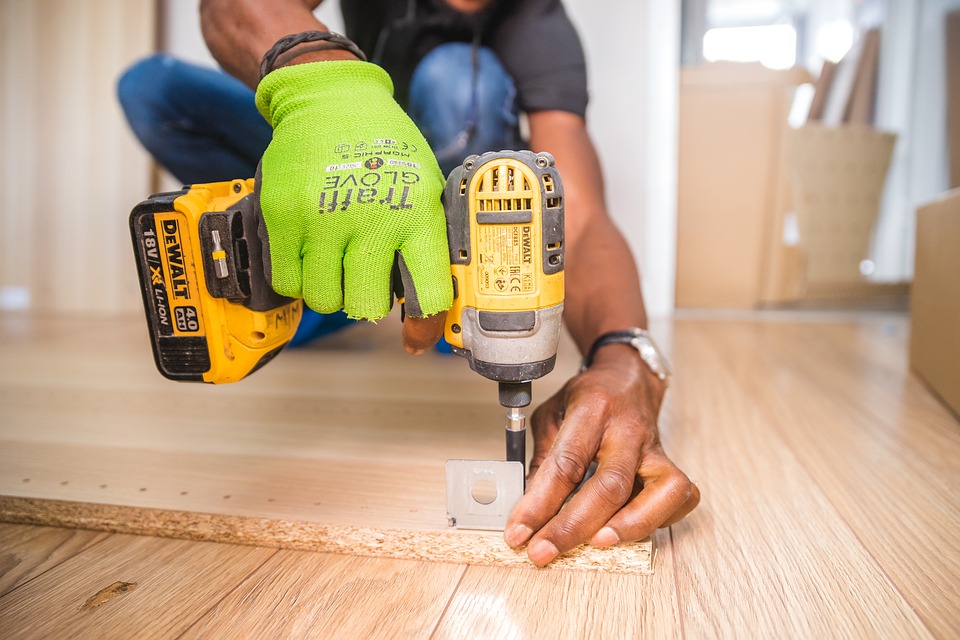
Are you looking to round out your tool chest?
If so, then you’ll want to make sure that you start with the essentials. While most people have a few hand tools lying around, those who are serious about getting their DIY habit going need to break in with some of the big guns.
So, keep reading and let’s see what you’ve overlooked in your quest for a better home workshop.
1. A Complete Set of Hand Tools
Screwdrivers, end wrenches, a couple of different sizes of a crescent wrench, and at least one hammer are the very basics of any handyman’s workshop.
If you look around you can find many cheaper sets available. You don’t need to buy $25 Snap-On screwdrivers unless you’re serious about making your living with them. As long as you round out the rest of our list then you’ll use these less than you’d think, but it’s always a good thing to have them around for when a battery dies or you absentmindedly forgot something before heading out to a job site.
2. A Drill
You need to make sure that you have a good drill when you’re setting up your shop. You can use them for more than just punching holes.
While an impact gun is an excellent addition to your home workshop they may not be necessary right at the outset and a drill will let you get powered screwdriver and nut driver bits going with minimal fuss.
Of course, you also need a good array of bits. Don’t cheap out on these, they’re actually more important than the drill in most cases and a broken bit can spell the end of a job until the next time you hit a hardware store.
3. Impact Wrench
While an impact hammer isn’t necessarily a requirement, a good impact wrench is a must for anyone who’s planning on working on cars. They’ll save you a lot of time and busted knuckles, and the best of them are powered by air rather than electricity.
So, along with the wrench, you’ll need a good compressor to power it. While they may not be required for many DIY projects most mechanically minded people find themselves drawn to being able to do their own mechanic work and an impact wrench can make a huge difference in your home automotive repair industry.
4. Circular Saw or Table Saw
Whether you choose to go with a table saw or a circular saw largely depends on whether you’re planning on working outside of the garage or not. Both are a good idea eventually but when you’re just starting out either will do for chopping and ripping lumber readily.
Circular saws are more portable, of course, but table saws have more power and are much more precise. They both serve the same essential functions in the end, however.
5. Rotary Tool
A Dremel or other rotary tool is the tool for those who want to do detail work, but that’s not the only thing they’re good for.
Rotary tools, with the correct bits, can be used for a ton of different functions and the better ones will surprise you with the amount of power and durability they possess. They’re a tool that is often limited only by the operator, so having one around is an essential part of every handyman’s kit.
6. Tin Snips
More than one handyman has found themselves needing to cut scrap metal and come up short. Tin snips are essentially a pair of oversized scissors, often reinforced with springs, that will allow you to cut through most thin metal with ease.
They’re often not the first thing on a prospective handyman’s list but they’re quite often necessary to complete tasks.
While you can improvise with a hacksaw it will end up taking much longer and complex shapes will be much easier to cut. Tin snips come in a variety of configurations, but you should mostly make sure that you have a pair of right, left, and straight cutters to make sure you’ve got the basics covered for metalwork.
7. Hacksaw
A hacksaw is essential for cutting piping and they can be used in a pinch to cut just about anything provided you have the right blade.
Look for an adjustable hacksaw for the best end result, but go large if you’re stuck using one with a fixed length. In many cases they’re just the tool to get the job done and if you’re careful about blade selection and the variety of power saws you have you most likely won’t need any other hand saws at all.
8. A Level
Levels are essential for any kind of precision work. Most handymen will end up with several.
For our money having an 8-12” and a 30-36” bubble level on hand is probably the best way to begin. Use the largest one possible for a given job as the greater length allows for more precision. They can also be a pain to use if the object is too small, however.
If you’re willing to spend the money then you may find that a laser level is a way to go in the end but they require batteries and are more prone to operator error than the old-school levels most of us grew up with.
9. Specialized Wrenches and Drivers
Allens, Torx, and square bits are all surprisingly common. Many people don’t have the tools to work on them, however.
For starting out you can just get a set of cheap Allens and a driver which is compatible with the other styles of bits. As time goes on you may want to get better, more specialized versions of each.
Seriously, take a look at some of the stuff in your house. Chances are your pocket knife is connected together with Torx screws, for instance, and many electronics require a square driver to open. If you’ve ever worked on a bike then you know how essential Allens are.
These specialized bits are easy to get, but they’re often overlooked by the beginner and having them can make you indispensable.
So, What Are You Missing?
When it comes down to it, every handyman will eventually have to find their own way into what they need. The above is only a start, most people’s collections will grow over time as they become specialized in different parts of the DIY process. Still, it’s important to have the basics.
Are you missing any of these? If so, there’s no time like the present to start getting them together!




 POSTED BY
POSTED BY 

